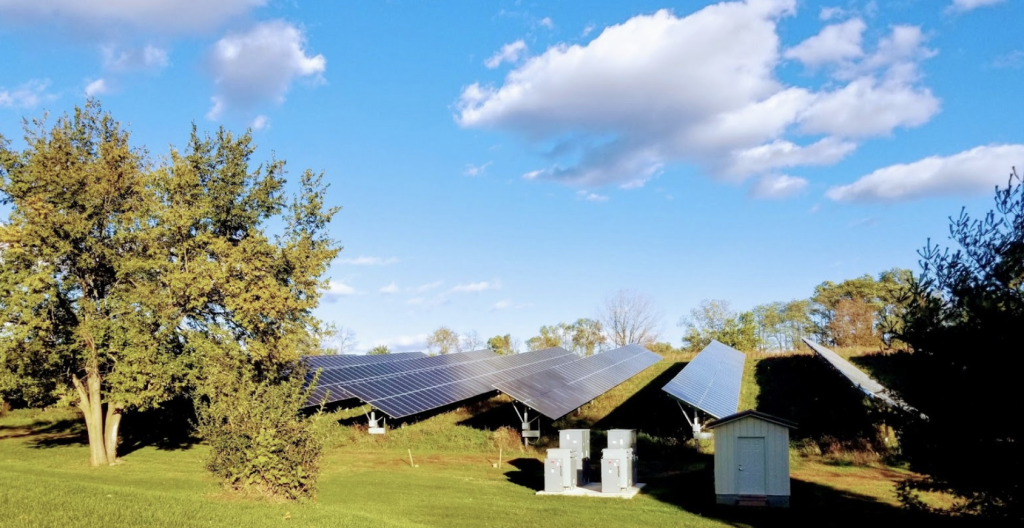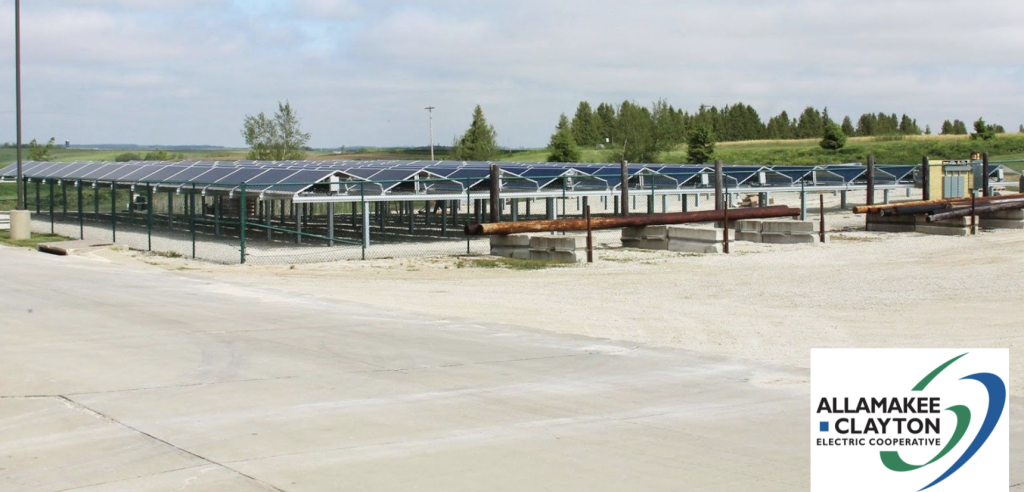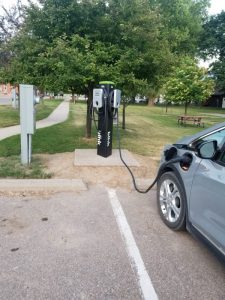
2021 Clean Energy Tour for Local Leaders
The Clayton County Energy District’s Clean Energy Tour for Leaders was hosted virtually on November 10th to provide clean energy education and updates to community leaders and decision-makers, and to inspire clean energy efforts.
During the tour, invited local leaders learned about a variety of clean energy efforts, project timelines, anticipated savings, carbon emission reduction, the ultimate community-wide benefits of the clean energy transition, and the efforts of the Clayton County Energy District to positively affect the local economy. The CCED does so by retaining energy dollars in Clayton County, by slowing climate change through the promotion of wise energy use, and by including EVERYONE.
The virtual tour featured four tour “stops” or topics including the Mount St. Francis almost 1MW solar field in Dubuque, the Allamakee-Clayton Electric Cooperative’s SunSource Subscription Solar Program, examples of local energy burden and energy audits, and finally, electric vehicle charging stations and how they improve the Clayton County tourism sector.

Tour attendees heard from Sister Marie Cigrand and Paul Hayes, Facilities Manager, of Mount St. Francis Center in Dubuque, along with solar contractor Ed Wulfekuhle of Wulfekuhle Electric, LLC (Delhi) about the large-scale solar field powering the Clare House Nursing Home. The 990 kW system was installed in 2020 and is estimated to supply Clare House’s energy load by 80%. Sister Marie explained that part of the Sisters of St. Francis’ mission is helping the poor and being in right relationship with God’s creation. Therefor by using less energy, this project will help people who need to use the energy in a different way, and they hope to slow climate change and preserve creation for future generations.

The next tour stop took attendees to Postville, where they learned about the Allamakee-Clayton Electric Cooperative’s SunSource Subscription Program from manager Ryan Wagner and program subscribers, Chris and Jerry Muff. Wagner explained that the program allows ACEC members (including renters) to use and benefit from solar energy. Many members do not have onsite opportunities to take part at their own residence. Subscribers can purchase the output of remote panels at ACEC headquarters for varying lengths of time. Each month, the total energy produced by the solar array is divided by the number of panels to determine per-panel production. Each subscriber’s account is then credited for the per-panel production. The Muff’s had an interest in soil and water conservation, a natural concern for the earth, and reducing the effects of climate change. The SunSource program allowed the Muff’s to own solar without worrying about the maintenance. Chris explained, “the return on investment for subscribers is minimal but allows them to reduce their carbon footprint.”

Tour attendees next had the opportunity to learn from Clayton County Energy District (CCED) Program Director, Joleen Jansen and Winneshiek Energy Comunity Engagement Specialist, Heidi Eger about Clayton County’s energy burden and energy audits available for residents. Jansen described the energy burden as annual utility bills divided by annual income. 6% or more is considered a high energy burden, and 63% of Clayton County households have a high energy burden ranging for 7-26%. Eger then gave an overview of one way to reduce the burden with energy audits through the First Step Home Efficiency Program. Assessments include testing combustion safety and air leakage, conducting whole-home LED lighting upgrades and air sealing, along with installing water-saving devices. Over 150 Clayton County homes have been assessed, resulting in over $16,000 total household energy bill savings per year in our county. It was noted that energy auditors and funds are needed to continue executing this important program.

Leaders also learned about CCED’s electric vehicle charging station project, in which they partnered with Upper Mississippi Gaming Corporation and city governments to bring charging stations to five Clayton County communities: Elkader, Guttenberg, Marquette, McGregor, and Strawberry Point. Prior to the project, our area of Northeast Iowa and Southwest Wisconsin was considered a charging station desert. Thanks to this project, Clayton County is now “on the map” as a travel destination for electric vehicle owners. Jamie Blume, the City of Guttenberg’s Assistant City Manager spoke about the process of installing Guttenberg’s charging station, along with the City of Guttenberg’s other efforts to increase energy efficiency.

 Previous Post
Previous Post